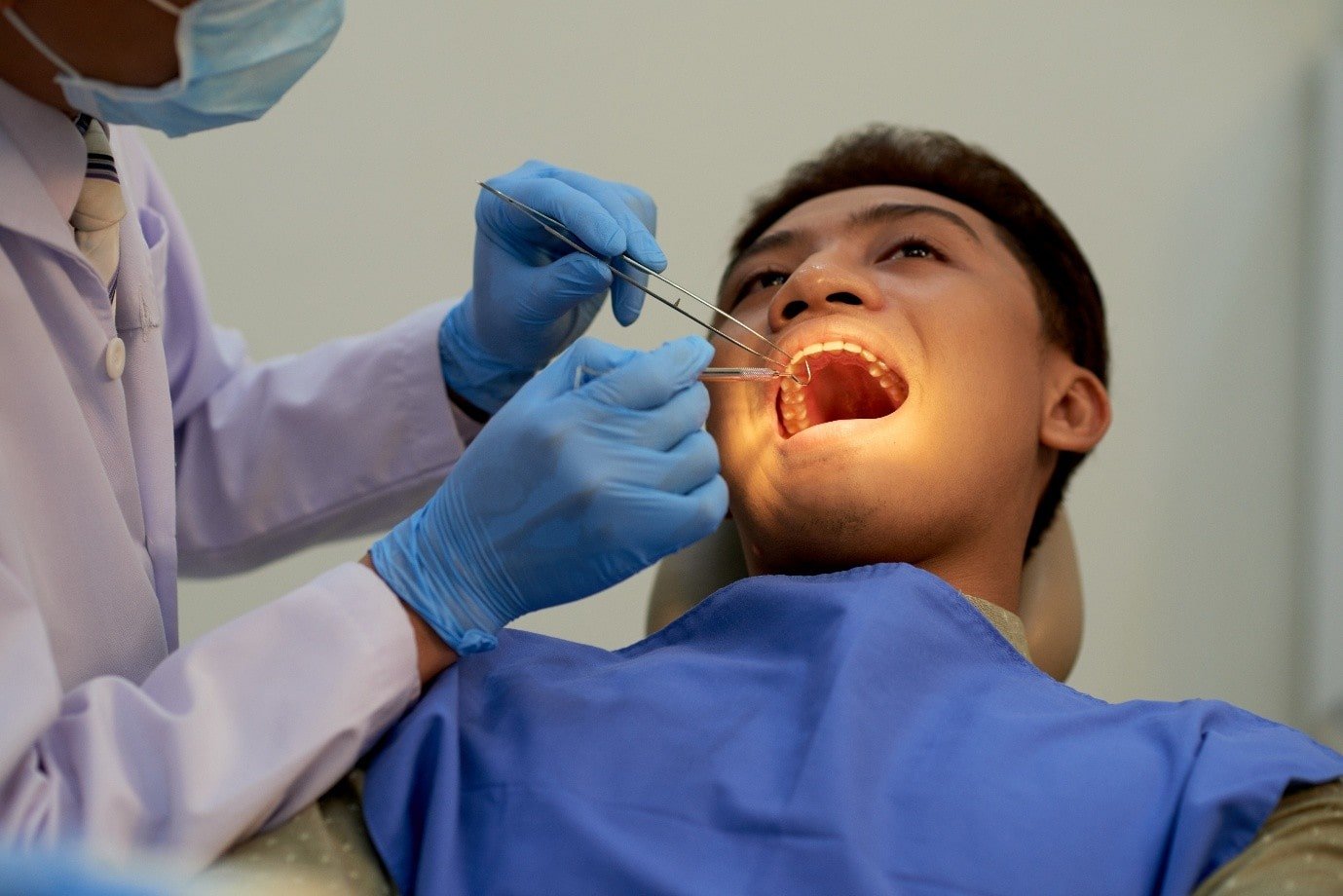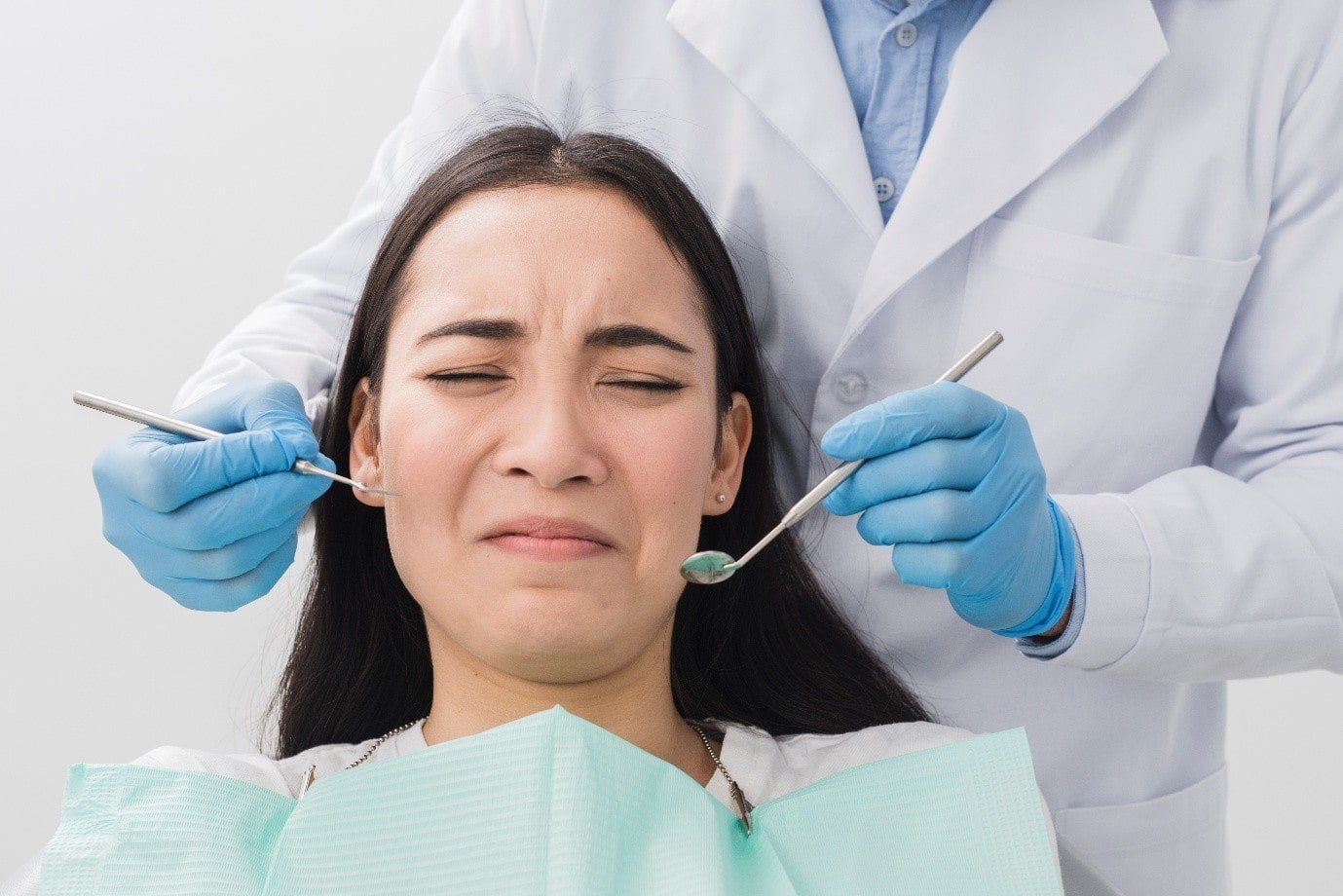Why Proper Aftercare Matters After a Tooth Extraction Surgery
Tooth extraction surgery is a common dental procedure performed for various reasons, such as severe decay, gum disease, overcrowding, or impacted wisdom teeth. While the procedure itself is essential to maintain oral health, what happens after the extraction is just as important. Proper aftercare plays a critical role in ensuring smooth healing, preventing complications, and maintaining long-term dental well-being.
Many people tend to underestimate the recovery phase, assuming the process ends once the tooth is removed. However, without following the right post-surgery care, you may face issues like delayed healing, infections, or even severe complications such as dry socket.
In this blog, we’ll explore why proper aftercare is vital after tooth extraction surgery, what steps you need to take, and how it helps in faster recovery and overall oral health.


Understanding Tooth Extraction Surgery
Tooth extraction is a procedure where a tooth is removed from its socket in the bone. There are two main types:
- Simple Extraction – Performed when the tooth is visible above the gum line and can be removed easily using dental tools.
- Surgical Extraction – Required when the tooth is broken, impacted, or not easily accessible, often involving a small incision in the gum.
While both procedures are carried out under local anesthesia, surgical extractions are more complex and require extra care during the recovery period. Once the tooth is removed, your body immediately begins a natural healing process, forming a blood clot in the empty socket to protect the area. This clot acts like a protective shield, preventing infections and aiding tissue regeneration.
Why Proper Aftercare Is So Important
Aftercare is more than just following your dentist’s advice—it’s a crucial part of the healing process. Neglecting aftercare can lead to discomfort and serious oral health problems. Here’s why proper aftercare matters:
1. Prevents Infection
The extraction site is essentially an open wound. Without proper care, bacteria can easily enter, leading to infections. Infections can cause swelling, pain, bad breath, and even spread to other areas of the body if left untreated. Good oral hygiene practices and prescribed medications help keep bacteria at bay.
2. Avoids Dry Socket
Dry socket is one of the most common complications after a tooth extraction. It occurs when the protective blood clot becomes dislodged or dissolves too soon, exposing the underlying nerves and bone. This can result in intense pain and delayed healing. Following aftercare instructions such as avoiding smoking or using straws can significantly reduce this risk.
3. Promotes Faster Healing
Proper aftercare speeds up the recovery process. By maintaining cleanliness, avoiding irritants, and sticking to recommended dietary guidelines, you help your gums and tissues heal quickly and effectively.
4. Minimizes Pain and Swelling
Ice packs, prescribed medications, and rest are all vital in managing post-surgery discomfort. Good aftercare ensures that pain and swelling remain under control, allowing you to return to normal activities sooner.
5. Protects Overall Oral Health
Tooth extraction affects not just the extraction site but also surrounding teeth and gums. Good aftercare habits help prevent shifting of adjacent teeth, gum infections, and long-term oral health issues.
Essential Aftercare Tips for Tooth Extraction Recovery
Here’s a detailed guide to caring for your mouth after surgery to ensure optimal healing:
1. Control Bleeding
- Bite gently but firmly on a gauze pad placed by your dentist to encourage clot formation.
- Keep it in place for at least 30–45 minutes, replacing it only when necessary.
- If bleeding continues beyond 24 hours, contact your dentist immediately.
2. Reduce Swelling
- Apply an ice pack to the outside of your face for 15–20 minutes at a time during the first 24 hours.
- This helps minimize swelling and provides relief from discomfort.
3. Take Medications as Prescribed
- Pain relievers and antibiotics should be taken exactly as instructed.
- Avoid self-medicating, as improper use of drugs can cause complications or slow down healing.
4. Follow Dietary Guidelines
Your diet plays a huge role in your recovery:
- Stick to soft foods like yogurt, mashed potatoes, soups, and smoothies for the first few days.
- Avoid crunchy, spicy, or hot foods that can irritate the wound.
- Stay well-hydrated, but avoid using straws, as suction can dislodge the blood clot.
5. Maintain Oral Hygiene Carefully
- Don’t brush the extraction site for the first 24 hours.
- After a day, gently rinse your mouth with a warm saltwater solution to keep the area clean.
- Avoid commercial mouthwashes containing alcohol, as they can irritate the healing tissues.
6. Avoid Smoking and Alcohol
Smoking and alcohol slow down the healing process and increase the risk of dry socket and infection. Ideally, avoid these completely for at least 72 hours after surgery.
7. Get Plenty of Rest
Your body needs energy to heal. Limit physical activity for the first 48 hours and get adequate sleep to support a smooth recovery.
Signs of Complications to Watch Out For
Even with the best aftercare, complications can sometimes arise. Being aware of warning
signs allows you to seek prompt professional help.
Here are symptoms you shouldn’t ignore:
- Persistent or severe pain beyond the first few days
- Excessive bleeding that doesn’t stop after applying pressure
- Swelling that worsens after 2–3 days instead of improving
- Fever or chills, which may indicate infection
- Foul taste or bad breath that persists despite proper cleaning
- Visible bone in the socket or intense pain radiating to the ear (possible dry socket)
If you experience any of these symptoms, contact your dentist immediately for evaluation and treatment.
Long-Term Benefits of Proper Aftercare
Following aftercare instructions doesn’t just ensure smooth healing in the short term—it also offers lasting benefits for your oral health:
1. Healthy Gum Tissue
Proper care allows your gums to heal fully, reducing the risk of future gum disease or recession.
2. Prevents Shifting Teeth
When a tooth is removed, surrounding teeth may shift into the empty space. By following your dentist’s advice and, if needed, considering options like dental implants or bridges, you can prevent alignment issues.
3. Prepares for Future Dental Work
If you’re planning to get an implant or denture later, good aftercare ensures the site heals properly, making future procedures more successful.
4. Maintains Overall Health
Oral health is closely linked to overall health. By preventing infections and complications, you also protect yourself from systemic issues that could arise from untreated dental problems.
How Long Does Recovery Take?
Recovery times can vary depending on the complexity of the extraction and individual healing factors.
- Simple Extractions: Most people heal within 7–10 days.
- Surgical Extractions: Recovery may take two weeks or longer.
Consistently following aftercare steps can shorten recovery time and make the process more comfortable.
When to Resume Normal Activities
- Eating solid foods: Usually after 3–4 days, depending on your comfort level.
- Brushing teeth: After 24 hours, with gentle care around the extraction site.
- Exercise or heavy lifting: Wait at least 48–72 hours to avoid increased blood flow that can cause bleeding.
- Work or school: Most people can return within a day or two, depending on their level of discomfort.
Final Thoughts
Tooth extraction surgery may seem daunting, but with proper aftercare, recovery can be smooth and complication-free. Taking the time to follow your dentist’s instructions, maintain good hygiene, and be mindful of what your body needs will make a significant difference in the healing process.
Remember, aftercare isn’t just about short-term recovery—it sets the foundation for long-term oral health. By prioritizing proper care after your surgery, you can prevent future dental issues, protect surrounding teeth, and ensure your mouth heals in the healthiest way possible. With patience and diligence, you’ll be back to enjoying a pain-free, confident smile in no time.

